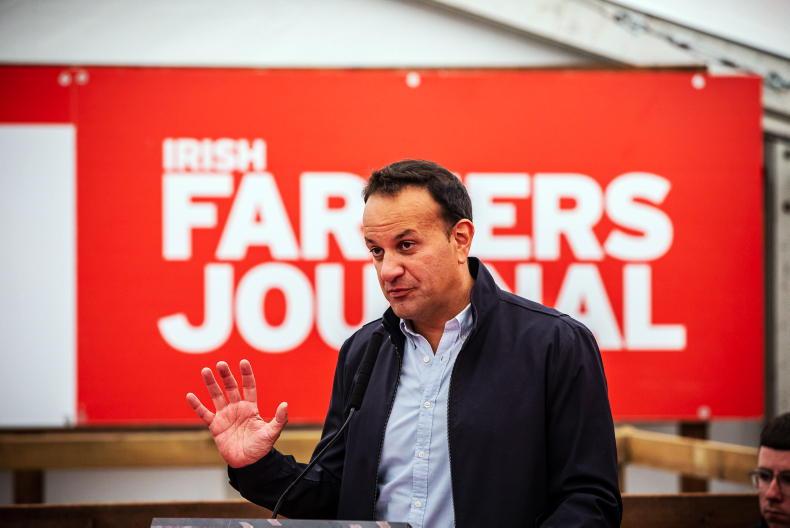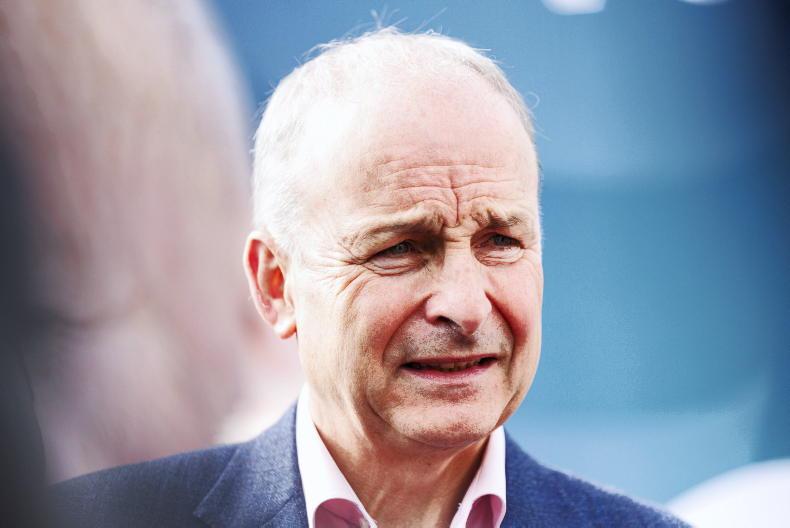Much has been made of Taoiseach Leo Varadkar’s comments about the Northern Ireland Protocol perhaps being too strict and that with mistakes made on all sides, he was willing to be flexible and reasonable about finding a solution.
Around the same time, the UK government announced that it was pushing ahead with developing the infrastructure for EU and non-EU or internal UK lanes at Northern Ireland ports.
This is more evidence of a growing realisation that solving the Brexit conundrum for the Irish border doesn’t fit into any existing EU playbook on border controls, nor does it absolve the UK from a role in administering EU controls.
Mistakes were made
The big mistake at the outset was the UK agreeing to the EU having such a hard-line position on border controls.
The EU won that negotiation, but what it overlooked was that it required the UK’s co-operation in delivery of that agreement.
When the UK, under political pressure, declined to implement what was agreed, the EU was left with few options other than a complete collapse of the entire Brexit agreement.
This was something that became ever more unpalatable as the COVID crisis was succeeded by Russia invading Ukraine, causing the worst energy crisis in decades.
The consequences of sanctions should be enough to focus minds
It also helps that the post-Brexit system has been in place with derogations for two years now without any major breaches in EU borders. This can be the basis for a more long-term resolution of managing EU border controls in Belfast.
If a point can be arrived at where supermarkets can use distribution centres in Britain and garden centres can bring product in for sale in Northern Ireland without controls and with controls for onward trade into the Republic of Ireland, it will be a success.
Livestock movements require some thought, as do potatoes, but neither of these should be the basis for collapsing an EU-UK trade agreement.
Practical solutions can assist political solutions
The consequences of sanctions should be enough to focus minds on getting a resolution.
If the EU imposed sanctions, the UK would retaliate. Sanctions are targeted at the most vulnerable targets, which would put Irish beef and cheese into Britain as an obvious target.
The consequences for cross-border trade on the island of Ireland would also be horrendous.
With a more stable government in place in Westminster and a growing realisation in Brussels that there is no point in a deal that doesn’t work for both parties, the road to a solution emerges.
The remaining stumbling block is political objections to the entire notion of a protocol. However, even here a clever rebranding exercise can give political cover and if the practicalities are such that there is negligible inconvenience, then a solution can be put in place.
It is in farmers' interests that this happens, irrespective of the fact that there will not be a political victory for either the purest border controls wanted by the EU or the hardest Brexit separating the UK from the EU at their only land border.
Read more
EU extend NI vet medicine deadline
Veterinary medicine pragmatism trumps politics with protocol
Labour Party in pole position to take power
Much has been made of Taoiseach Leo Varadkar’s comments about the Northern Ireland Protocol perhaps being too strict and that with mistakes made on all sides, he was willing to be flexible and reasonable about finding a solution.
Around the same time, the UK government announced that it was pushing ahead with developing the infrastructure for EU and non-EU or internal UK lanes at Northern Ireland ports.
This is more evidence of a growing realisation that solving the Brexit conundrum for the Irish border doesn’t fit into any existing EU playbook on border controls, nor does it absolve the UK from a role in administering EU controls.
Mistakes were made
The big mistake at the outset was the UK agreeing to the EU having such a hard-line position on border controls.
The EU won that negotiation, but what it overlooked was that it required the UK’s co-operation in delivery of that agreement.
When the UK, under political pressure, declined to implement what was agreed, the EU was left with few options other than a complete collapse of the entire Brexit agreement.
This was something that became ever more unpalatable as the COVID crisis was succeeded by Russia invading Ukraine, causing the worst energy crisis in decades.
The consequences of sanctions should be enough to focus minds
It also helps that the post-Brexit system has been in place with derogations for two years now without any major breaches in EU borders. This can be the basis for a more long-term resolution of managing EU border controls in Belfast.
If a point can be arrived at where supermarkets can use distribution centres in Britain and garden centres can bring product in for sale in Northern Ireland without controls and with controls for onward trade into the Republic of Ireland, it will be a success.
Livestock movements require some thought, as do potatoes, but neither of these should be the basis for collapsing an EU-UK trade agreement.
Practical solutions can assist political solutions
The consequences of sanctions should be enough to focus minds on getting a resolution.
If the EU imposed sanctions, the UK would retaliate. Sanctions are targeted at the most vulnerable targets, which would put Irish beef and cheese into Britain as an obvious target.
The consequences for cross-border trade on the island of Ireland would also be horrendous.
With a more stable government in place in Westminster and a growing realisation in Brussels that there is no point in a deal that doesn’t work for both parties, the road to a solution emerges.
The remaining stumbling block is political objections to the entire notion of a protocol. However, even here a clever rebranding exercise can give political cover and if the practicalities are such that there is negligible inconvenience, then a solution can be put in place.
It is in farmers' interests that this happens, irrespective of the fact that there will not be a political victory for either the purest border controls wanted by the EU or the hardest Brexit separating the UK from the EU at their only land border.
Read more
EU extend NI vet medicine deadline
Veterinary medicine pragmatism trumps politics with protocol
Labour Party in pole position to take power









SHARING OPTIONS